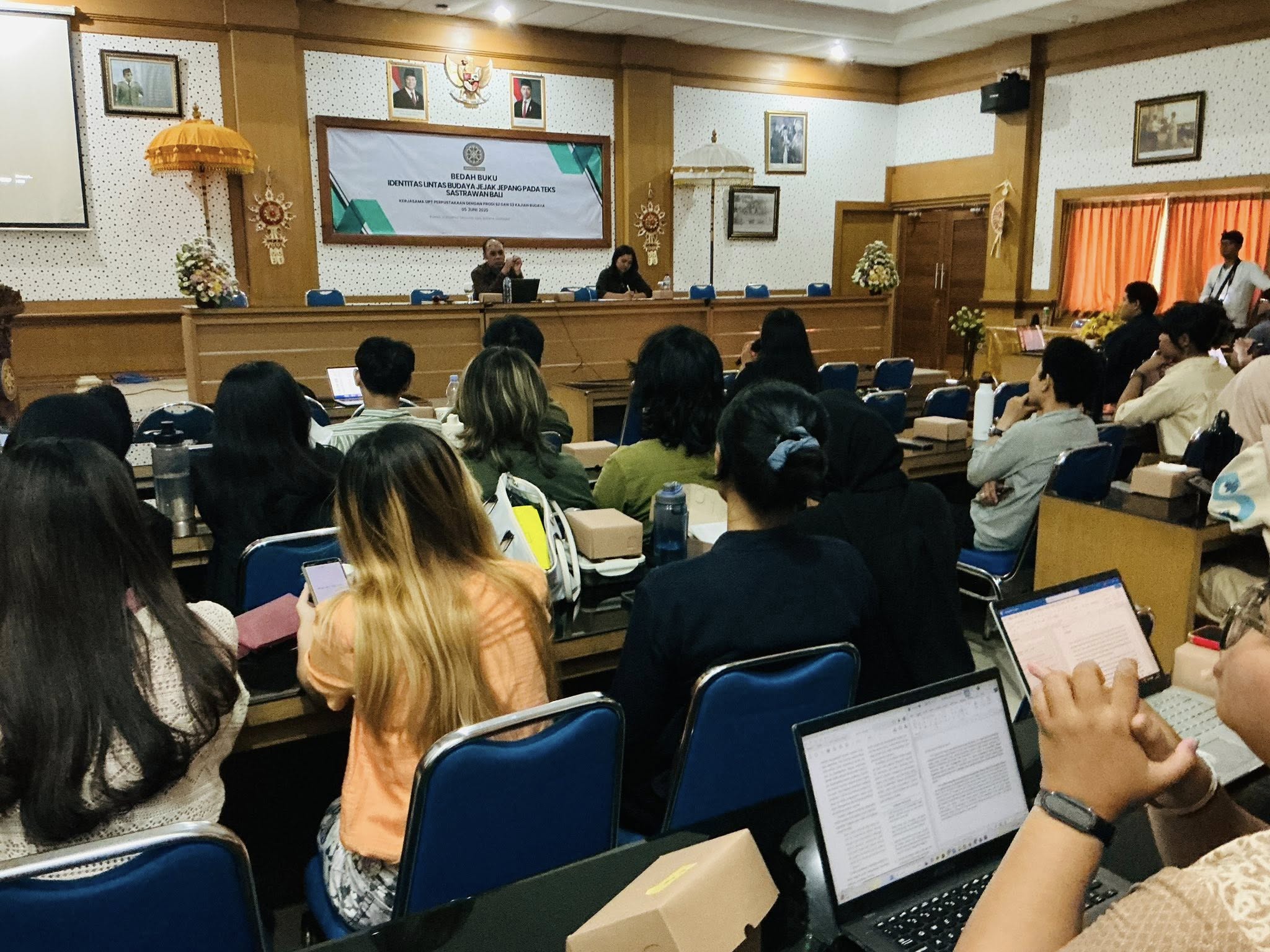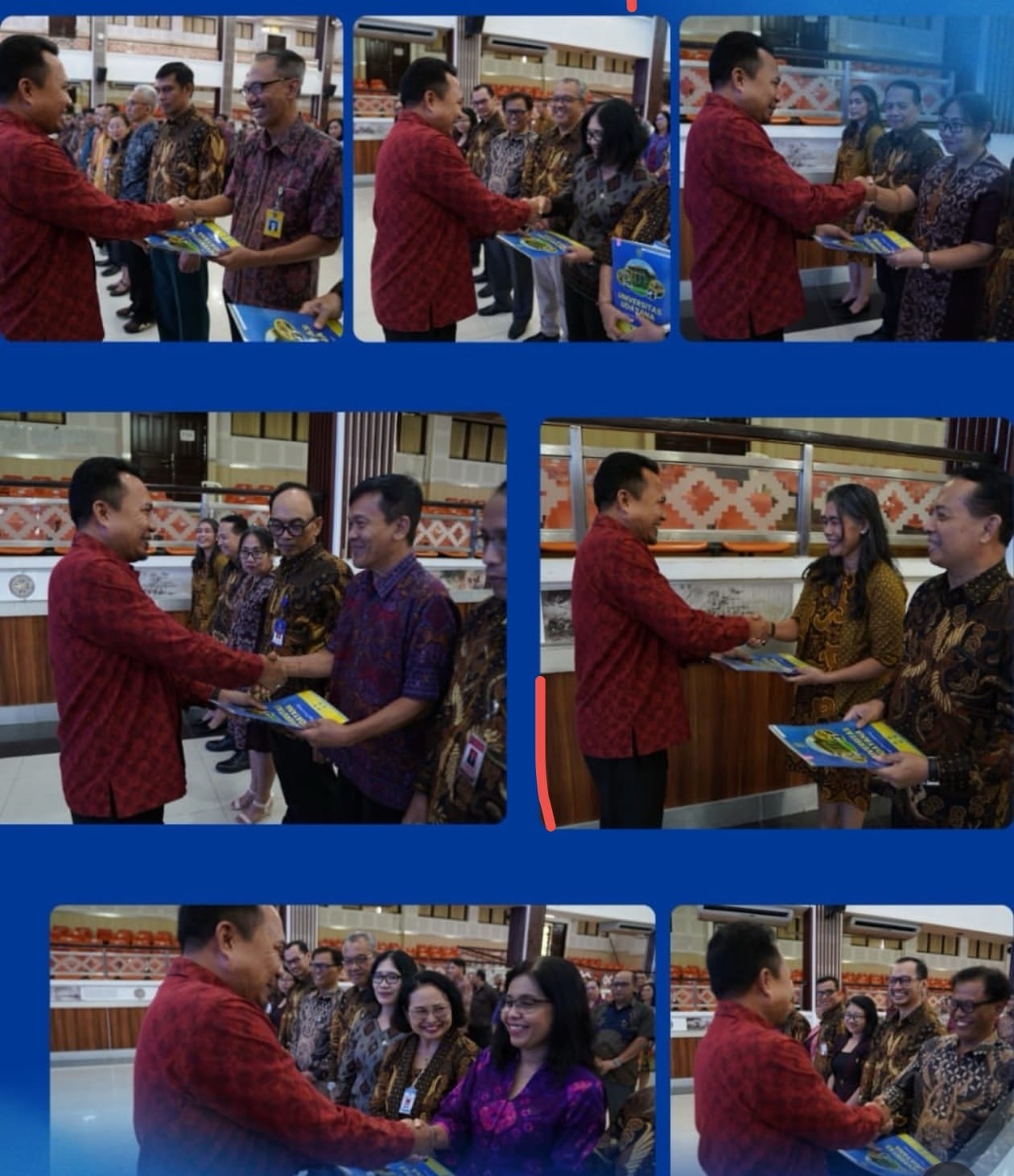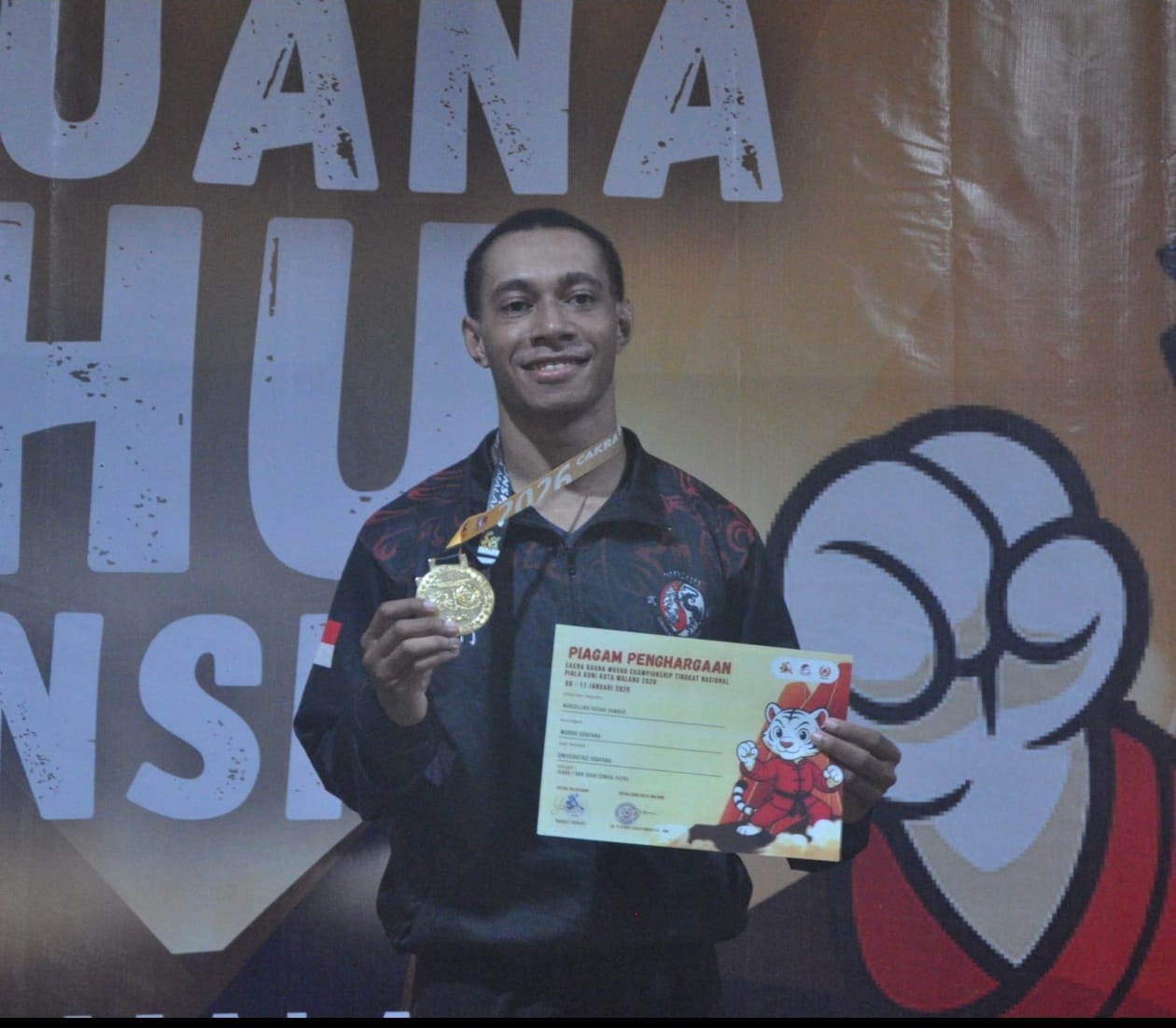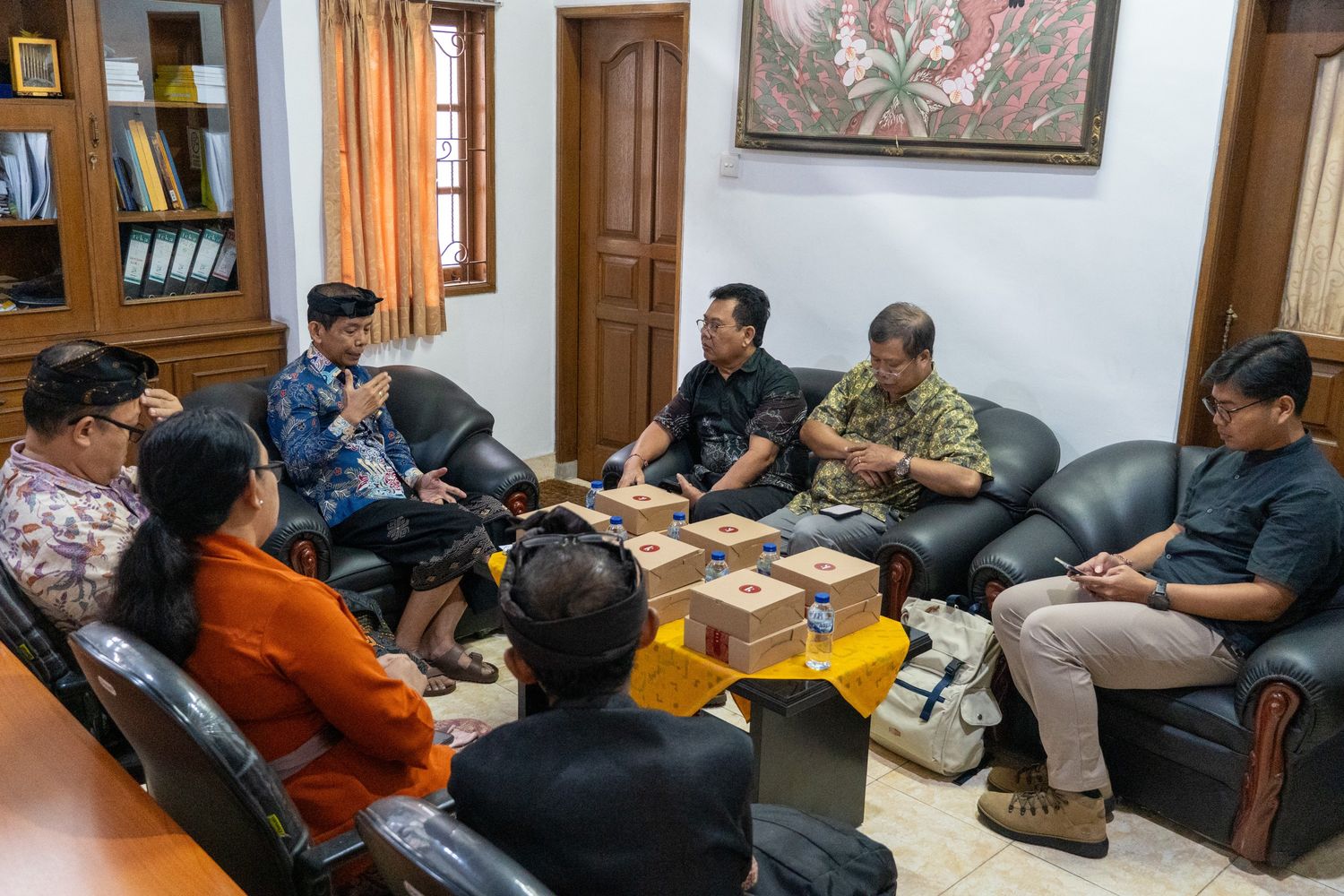Tracing Japanese Identity in Balinese Literary Texts, Cultural Studies Doctoral Study Program FIB Unud Collaborates with Udayana University Library to Hold Book Review and Discussion
Thursday, June 5, 2025, the Doctoral Study Program in Cultural Studies, Faculty of Humanities, Udayana University in collaboration with the Udayana University Library, held a Book Review entitled "Cross-Cultural Identity: Japanese Traces in Balinese Literary Texts". This book is the work of Prof. Dr. I Nyoman Darma Putra, M.Litt., Lecturer in the Indonesian Literature Study Program, FIB Unud who also serves as the Coordinator of the Doctoral Study Program in Cultural Studies, FIB Unud. This book review was conducted with the aim of enriching the perspective of literary studies, especially in the context of local Balinese literature.
The event was held in the Ir. Soekarno Room, Poerbatjaraka Building, Nias Campus, Faculty of Humanities (FIB), Udayana University (Unud). The speaker was Dr. I Made Sujaya, S.S., M.Hum. He is a lecturer from the Indonesian and Regional Language Education Study Program (PBID), Faculty of Languages and Arts (FBS), PGRI Mahadewa Indonesia University (UPMI) Bali. The moderator for this event was Dr. I Gusti Ayu Andani Pertiwi, SS, M.Sc., an alumna of the Doctoral Study Program in Cultural Studies, FIB Unud. This event was enthusiastically attended by at least 60 students from various study programs at FIB Unud, including the Japanese Literature Study Program, the Masters and Doctoral Program in Cultural Studies, and the Linguistics Study Program, the Masters and Doctoral Program.
In his presentation, the book reviewer, Dr. I Made Sujaya, said that the study of Japan or Japaneseness in Indonesian literature is not something new. Studies on Japan in Indonesian literature have been conducted by a number of Indonesian literary researchers, including Koh Young Un (2006) who studied the image of Japan in Pramoedya Ananta Toer's novels, and Sunu Wasono (2007) who studied the image of Japan in post-independence novels. He added that this book opens up a new perspective, making it possible to conduct similar studies for local Balinese literature. The novelty in this study is mainly shown by the emergence of the Japanese literary form, namely haiku in modern Balinese literature.
Balinese writers adopted the haiku form to convey their literary expression. This reflects the open attitude of Balinese writers in accepting external influences. The image of Japan in the texts of local Balinese writers tends to be positive. Unlike what other Indonesian authors wrote, the image of Japan tends to be negative. Furthermore, in a cross-cultural context, Sujaya emphasized that Darma Putra's study places literature as a source of knowledge that is on par with other fields of science. Literature is also not just an imaginative work that is often seen as inferior to non-literary texts. Through literature, we can help understand and respond to reality, including in constructing personal and collective identities.
Closing the event, Prof. Darma Putra as the author, expressed his gratitude for the review given by the reviewer. He explained that this book discusses traces of Japan or Japaneseness in literature in Bali, which is a unique phenomenon in the world of literature by Balinese authors. As far as it can be observed, there are no similar traces from or about other countries or nations, including from the Dutch colonial state. The theme of Dutchness does not appear to be present as a cluster of themes in the literary works of Balinese authors. Different from the Japanese theme. As a literary researcher, of course this phenomenon is too good to miss," he said.




UDAYANA UNIVERSITY